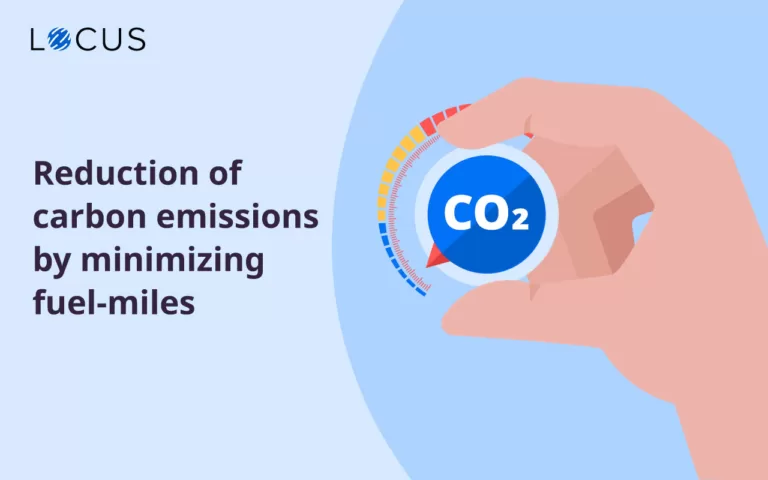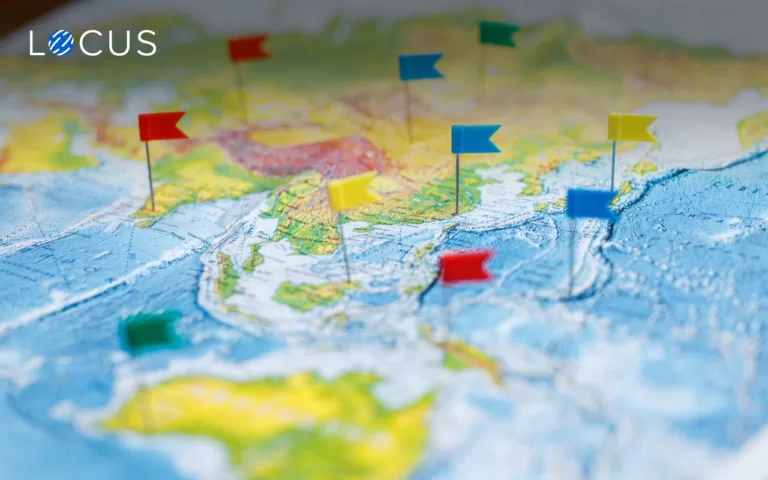Featured
GoTo Merger – A Super App, Woke Consumers, and A Transforming SEA Economy
Jun 23, 2021
8 mins read

2019. That was the year when I first experienced the true power of wielding an app where I could hail a cab, order food or simply get parcels delivered anywhere in the city, all from a single interface.
Although India had advanced reasonably well in the ride-hailing, food and b2c deliveries, and fintech industries individually by then, finding an aggregator app with all these features was almost non-existent.
Fast forward to 2021 – Indonesia’s two largest tech giants, GoJek and Tokopedia, announced a partnership to form a new entity – GoTo. The idea behind GoTo was to combine GoJek’s fintech and crowdsourcing penetration with that of Tokopedia’s e-commerce might to form a trifecta of e-commerce, ride-hailing + deliveries, and financial services. A one-stop-shop for tech-savvy consumers.
The concept of super-apps is not a new one. It was first introduced in China by Tencent’s WeChat and has since been adopted as the future of digital consumer tech in the SEA region. So why is the GoTo merger so exciting? To understand that, let’s take a look at few numbers from GoJek’s official website:
- GoTo group had a cumulative Gross Transaction Value (GTV) of $22 billion in 2020
- Over 1.8 billion transactions in 2020
- Total registered driver fleet of over two million as of December 2020
- Over 11 million merchant partners as of December 2020
- Over 100 million monthly active users (MAU)
- An ecosystem that encompasses 2% of Indonesia’s GDP
All these numbers are pretty impressive by themselves, but to truly appreciate them, let’s draw a comparison with GoTo’s closest rival, Grab. Considering the total number of monthly transactions and number of active merchants on e-commerce platforms, GoTo and Grab stand as equals. As reported in 2020, GoTo clocked a total of 1.8 billion transactions across all its platforms, while Grab recorded 1.9 billion. However, GoTo was leaps and bounds ahead of Grab in terms of e-commerce merchants on their respective platforms. Grab disclosed a total of 2 million merchants, whereas GoTo boasted 9.9 million sellers, a combination of Tokopedia’s empire with that of GoJeks 900,000 merchants.
The GoTo merger comes at a strategic time when all the major tech players are vying for a piece of Indonesia’s >1 trillion GDP pie. Considering the top three competitors of GoTo group, Sea Ltd’s strength lies in gaming and e-commerce. Channeling the massive financial success of Garena into Shopee has fortified it into having higher Gross Merchandise Value (GMV) and monthly active users compared to Tokopedia; Grab’s lies in ride-hailing and food/courier deliveries, its GMV remains higher than that of GoJek; and Lazada’s strength lies in e-commerce. Although these internet companies are leaders in their industries, none of them have come close to conquering the three verticals together. This is where GoTo’s perceived upper hand lies, not to mention the company leverages a strong patriotic feeling.
Gojek and Tokopedia are thorough Indonesia bred-and-raised unicorns, while Grab, Sea Ltd, and Lazada find their roots in Singapore. Indonesia has a population of 270 million and is the fourth most populous country in the world. As of 2020, around 50% of the population across the archipelago has access to smartphones and cheap data, and the cost of data has been reducing by the day. The GoTo merger will allow it to tap into a country that is at a confluence of a massive population and a fast-growing middle class, and young, tech-savvy people.
The decision to tap into the three verticals it has chosen to service is no shot in the dark. Let’s take a look at how the merger will benefit the economy and the digital consumers of Indonesia.
1. E-commerce
As a developing economy with underserved consumers, Indonesia presents a golden opportunity for e-commerce companies to tap into the market. From a consumer perspective, the merger will reduce friction between sellers and customers and ensure a seamless delivery of goods and services.
The benefit will not just end here, though. The assurance of a massive Gojek fleet dedicated to Tokopedia will ensure more customers place orders via the market place knowing that the SLA of their deliveries would get reduced significantly. This would create a domino effect in the following manner –
- Democratize Commerce – More consumers will drive up the demand, making the markets more accessible and penetrable for merchants. This could promote a stage for the local producers to market their wares and drive the regional economy.
- Job Creation – In addition to the above point, jobs could drive more people towards entrepreneurship. The tech industry can be directly supported by sales, or indirectly via tech infrastructure behind shifting a business from offline to online marketplace, or by simply introducing more signups for on-ground delivery fleet.
- Social Equity – The benefits of a robust online marketplace are its direct contribution to gender parity, equal stage for merchants across social strata, and economic growth all over the archipelago and not just concentrated in the Java region.
- Consumer Benefits – According to a Mckinsey study, consumers in Indonesia have seen huge savings by switching to online commerce. Regions outside Java have saved as high as 25%, whereas, in Java, consumers have benefitted up to 14%. This disparity was noted because the distribution networks in Java were already well established, and hence the region’s baseline savings were already higher than other regions.
2. Deliveries
With advancement in the e-commerce industry, it is obvious for consumers to expect faster delivery times. True to this, one of the most common complaints from an average Indonesian consumer pertains to delivery time. The GoTo merger creates a perfect concoction for the heavy influx of Tokopedia marketplace to be served by GoJek’s high volume, high-frequency mobility transactions.
With more personnel joining the on-ground workforce, the hyperlocal delivery model will be the next pivot in tech advancement and optimization. Hyperlocal deliveries will form a robust system where the consumers procure from the closest merchant, GoJek riders procure the shipment, and the delivery is made within the hour or the set SLA window. The foreseeable effects of the GoTo merger could be –
- Wider Service Zones – Increase in active merchants would, in-turn enable GoTo to service a wider area. This would expand the opportunities for merchants and consumers across the far reaches of the archipelago.
- Effective Supply Chain – Hyperlocal business leverages the proximity of the merchants to the high retail density areas which cost-effective last-mile deliveries can then service.
- Reduced Delivery Time – As the customer expectations rise, the hyperlocal delivery model will transition from same-day deliveries to same-hour deliveries.
- Real-time Order Tracking – With major tech players swooping in on the hyperlocal delivery model, major operations pain will become customer retention. End-to-end real-time order tracking will become the defining feature that ties customer loyalty with Goto’s SLA adherence.
3. Finance
Within SEA, Indonesia presents the largest fintech market, yet almost 140 million people have little or no access to the country’s financial system. Where banks struggle to service a potential population spread across the archipelago, Gojek’s financial wing will have the opportunity to pick up the slack through mobile phone banking services.
GoTo’s financial services are already deeply rooted in the Indonesian economy. With services such as GoPay, GoBiz Plus, Paylater, GoInvestasi, and Gosure, the fintech arm is perfectly positioned to be accessed by higher-margin yet underserved, low-income populations. By providing insurance partnerships and small loans to MSME merchants present within the ecosystem, GoTo can scale the operations by ensuring a healthy, reliable financial bubble which will help the budding entrepreneurs to raise capital to compete in the growing digital market.
With life post-covid becoming the new normal, most people, especially the aging population, have been forced to become tech-savvy. Further, with on-demand, contactless deliveries becoming the need of the hour, GoTo has demonstrated how two companies with similar visions can form a synergy to usher consumer tech into the new decade. Of course, Grab has been in talks with Bukalapak to create its own super-app, but hey, the more the competition, the better will be the hyperlocal deliveries for the consumers.
Perhaps India can take a leaf out of Indonesia’s book since both economies are pretty similar in population density, emerging middle-class, and a thirst for consumerism.
Author’s Note: Drivers of Gojek’s delivery arm, GoSend, announced a strike starting from June 8 after a reduction in incentives was announced following the merger news of GoTo. Read more about it here.

Related Tags:

Featured
Reduction of carbon emissions by minimizing fuel-miles
Authors: Arpita Mishra and Zubin Pradhan Supply chain enterprises have the prime social responsibility of adopting sustainability measures and controlling the negative impact of logistics on the environment. In terms of global transport emissions, the road sector is by far the largest emitter, with passenger and freight transport contributing nearly three-quarters of the overall transport […]
Read more
Featured
How Locus Carries out Multi-Country Enagagements
Organizations are growing and expanding their business operations across the globe. With this evolving nature of business, the supply chain and logistics network needed to support these business operations have become more complex. In order to scale up and manage these globally fragmented logistics networks, many companies have started to use a universal cloud-based TMS […]
Read moreMOST POPULAR
EDITOR’S PICKS
SUBSCRIBE TO OUR NEWSLETTER
Stay up to date with the latest marketing, sales, and service tips and news


GoTo Merger – A Super App, Woke Consumers, and A Transforming SEA Economy